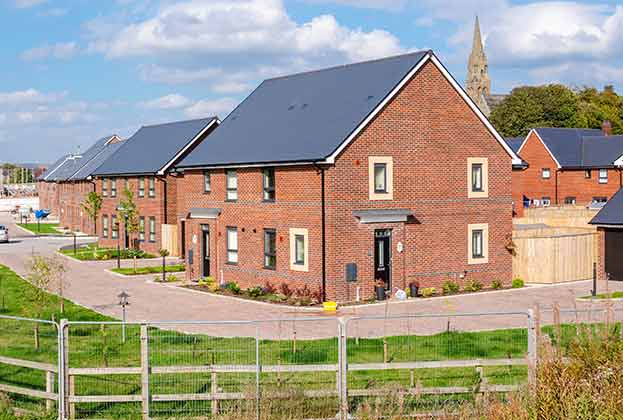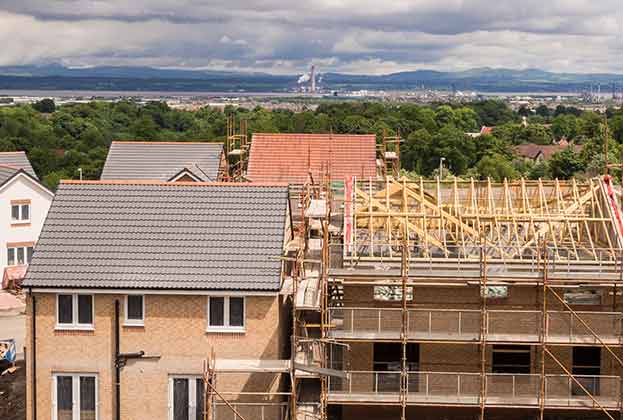This is a climate emergency!
The first climate emergency was declared in Melbourne, Australia in 2016, and since then declarations have been made in over 33 countries across the world. By declaring an emergency, a governing body acknowledges that it needs to act on both the causes and impact of climate change. It is a political commitment, but also provides the foundation for a regulatory framework. In a planning context, it prompts consideration of the location of development, modes of transport, energy efficiency, and clean energy production.
The first British council to make a declaration was Bristol in 2018. As of April 2021, 224 local authorities across England have declared a climate emergency, representing 71% of the country’s total. In Wales the proportion is even higher, with 73% of local authorities declaring a climate emergency. For Scotland, the proportion is slightly lower, at 20 authorities accounting for 63%. In Wales, there are some unique legacy issues and challenges associated with the nation’s industrial base and its power generation infrastructure. Here, national commitments and local strategies recognise that the next 10 years will be critical – with the objective to achieve two thirds of the reductions required to achieve net zero by 2030.
Many local authorities are aiming to be more effective than the targets set by their respective national governments. 50% of local authorities are aiming for their activities to be net zero carbon by 2030
Hamish Simmie, Associate, Residential Research
Many local authorities are aiming to be more effective than the targets set by their respective national governments. 50% of local authorities are aiming for their activities to be net zero carbon by 2030. In some cases, such as Gateshead and Chichester, this includes a specific commitment to ensure that all strategic decisions, and approaches to planning decisions are in line with a shift to net zero carbon by 2030. In other local authorities the targets set relate solely to the operation of their estate and services such as waste collection. Over a third of the councils that have set a net zero target date for their own operations have not set a goal for the whole council area.
There are some councils that are showing greater ambition. Winchester is aiming for the Council’s activities to be carbon neutral by 2024, with the wider district to reach net zero by 2030. Edinburgh and Highland lead the way in Scotland, with Edinburgh aiming for the city to be carbon neutral by 2030, and Highland setting the same standard for Inverness, with the rest of the council area to transition to a low carbon economy. Milton Keynes is aiming to be carbon neutral by 2030, and carbon negative by 2050. Across England, Scotland and Wales, 127 local authorities have committed to reach net zero at an earlier date than the national government.
Despite these positive intentions, almost a quarter of local authorities across Great Britain are either aiming for a later date to achieve net zero carbon, with target dates beyond 2036, or have not specified a date for reaching the goal. Furthermore, 29.1% of local authorities are yet to declare an emergency at all. At a regional level, the area with the greatest level of inaction is East of England with 44% of local authorities across the regions yet to declare. For Welsh authorities, non-declaration is often a conscious decision. Rhondda Cynon Taff has stated it sees no merit in declaring an emergency and is focussing instead on the measures required to tackle it.
Want to find out more about Planning and Development? Read our latest insights here.
Read the articles within Planning Research 2021 below.
.jpg)


